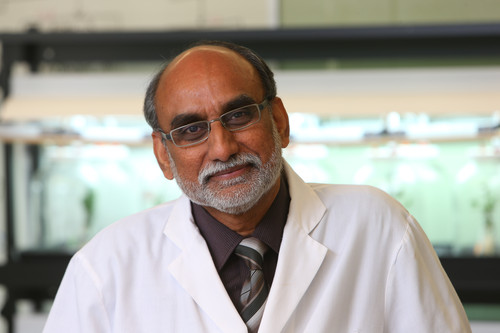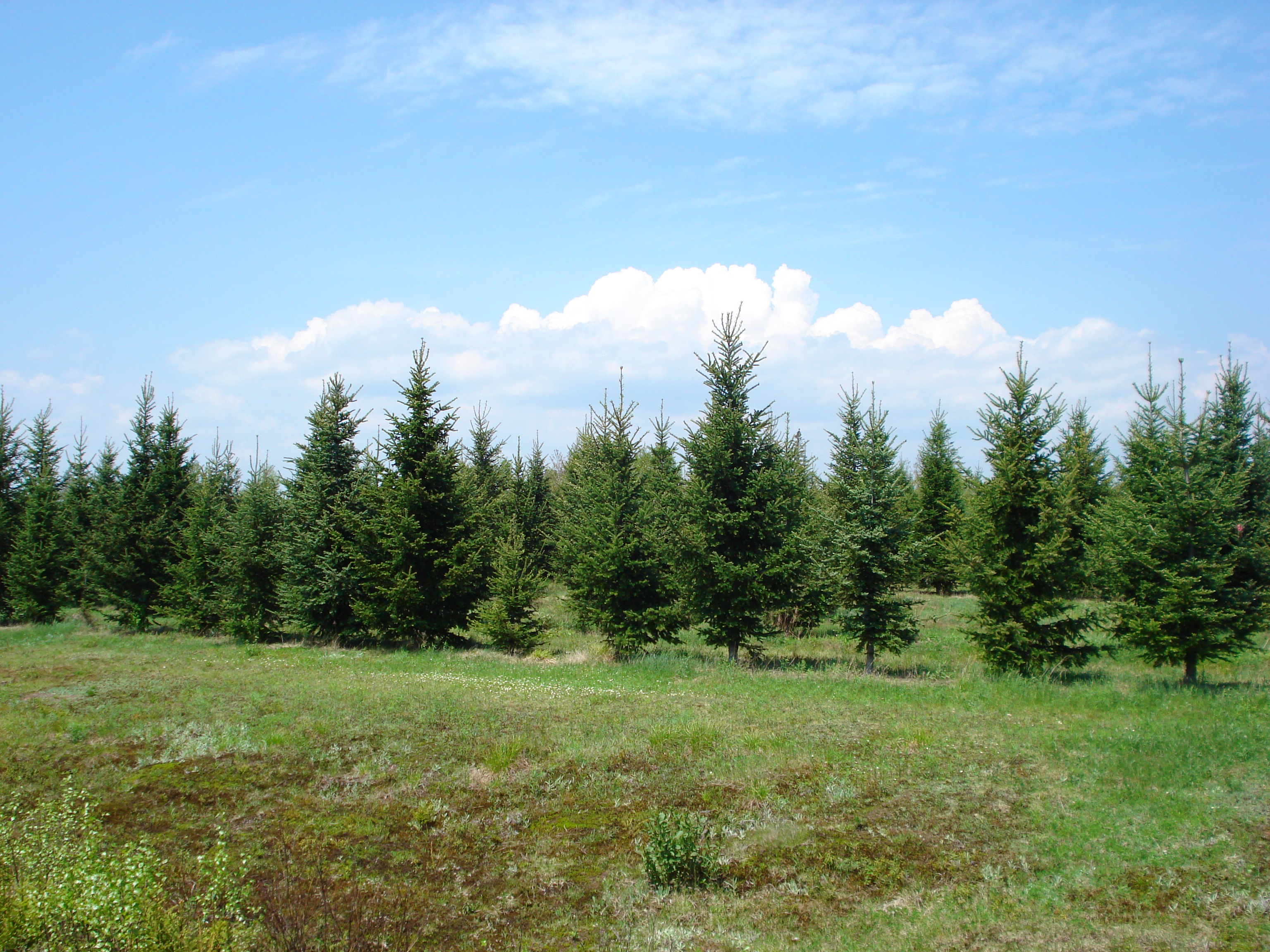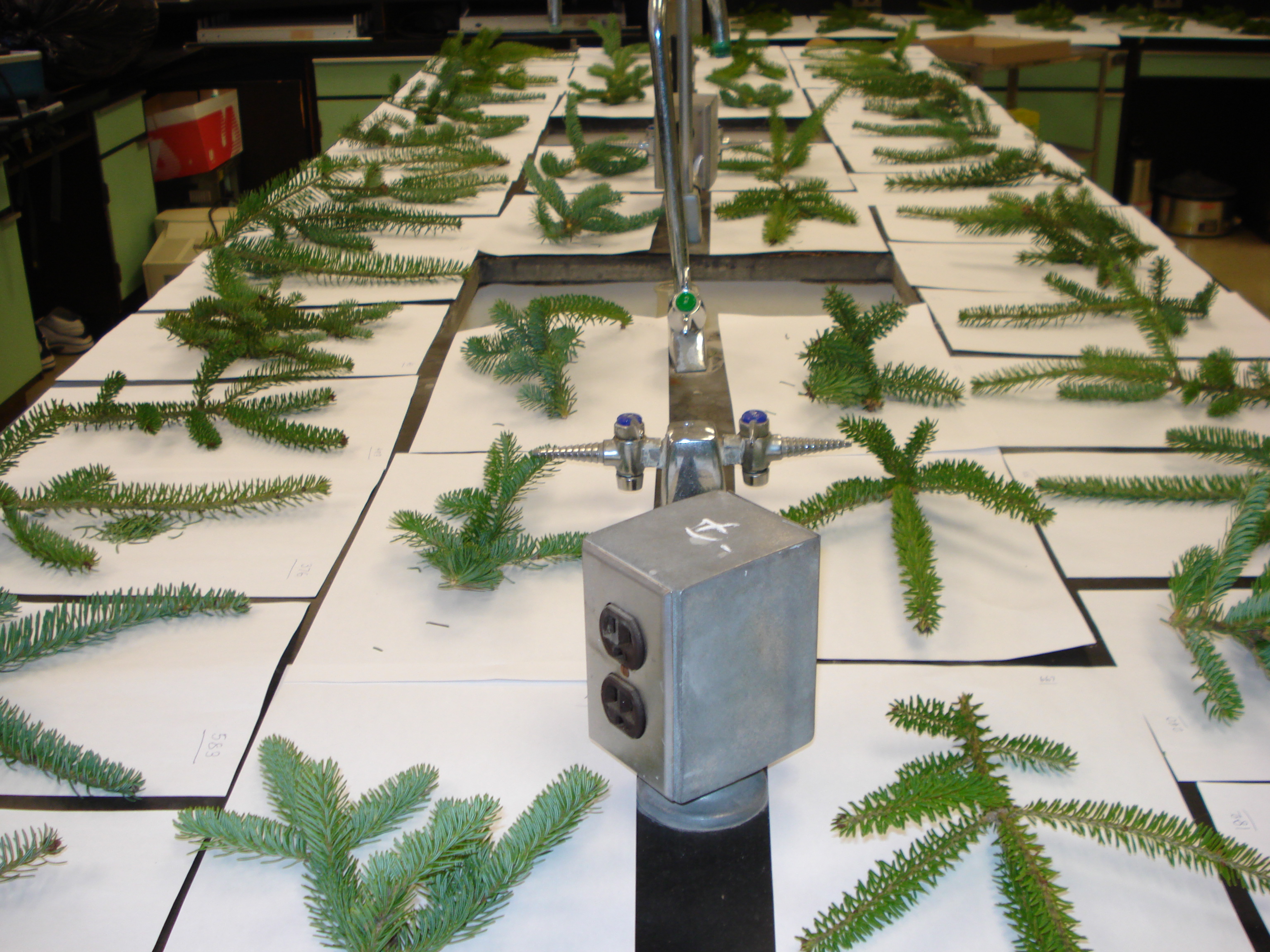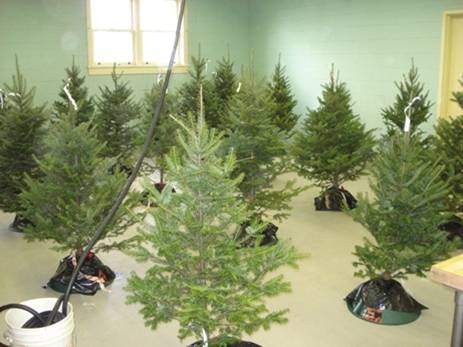Media Releases
» Go to news mainChristmas Tree Research at Dalhousie Universityâs Faculty of Agriculture strengthened by industry partnership
Christmas tree growing and exporting is a nearly $100 million industry in Atlantic Canada employing 20,000 people. In the future, most of these trees may be “SMART Balsams.” Dalhousie Faculty of Agriculture Scientist, Dr. Raj Lada, driven by a commitment to rural sustainability, is providing support and research to innovate the Christmas tree industry in the region.
Lada and his team, through the national Christmas Tree Research Centre, (CRC) are working strenuously to develop products and technologies to enhance needle retention as well as produce what they call a “SMART Balsam”, which epitomizes an ideal tree - full, sturdy architecture, unique fragrance, blue-green needles and pest free with needle retention lasting for up to three months or more.
This research has recently been boosted by funding through a new collaborative research agreement between the SMART Christmas Tree Research Co-operative Ltd., and Dalhousie University.
Key Points:
The Co-operative is contributing $350,000 to the Christmas Tree Research Centre to further the Faculty’s research into needle retention of Balsam Fir trees – a $6 million project.
The SMART Christmas Tree Research Co-operative was created through the Christmas Tree Council of Nova Scotia as a way for all Atlantic Canadian Christmas tree producers to provide funding to further research and commercialization into this valuable industry.
The Co-operative is used as a mechanism to access industry funds and for commercialization purposes.
The Co-operative is used as a mechanism to access industry funds and for commercialization purposes.
Researchers at the CRC study needle retention as their main focus in an effort to understand and discover the signals, mechanisms, factors and environmental conditions that trigger postharvest needle drop.
Several innovative technologies have been and will continue to be developed to reduce needle drop and promote needle retention. They have discovered the potential signal involved in postharvest needle loss, the biophysical factors that accelerate postharvest needle drop and some specific environmental and nutritional factors that promote postharvest needle drop. Several clones have been identified to have high needle retention duration. As well, the CRC has identified phenotypes that did not respond to applied signal implying that they retain the needles for long period of time.
Pull Quotes:
Innovations and technologies developed by the Balsam fir Christmas tree research at Dalhousie University will take the Atlantic Canadian Christmas tree and greenery industry from a survival status to an excel and thrive status - Jim DeLong, President, SMART Christmas Tree Research Co-operative,
Our scientists are solving real world problems with leading edge technology, in partnership with a wide variety of industries. Today we are contributing to the health of our local agricultural economy by helping producers grow Christmas trees that stay fresher, longer thus sustaining this vital industry in Atlantic Canada. - Dean Faculty of Agriculture, David Gray
I am very pleased to lead researchers and those working in the industry through this process as well as to be part of the change myself. - Dr. Raj Lada.
Images:
 |
Dr. Raj Lada Photo Credit: Download Hi-Res image |
 |
Christmas tree germplasm Photo Credit: Download Hi-Res image |
 |
Christmas trees clonal screening Photo Credit: Download Hi-Res image |
 |
Christmas trees post harvest study Photo Credit: Download Hi-Res image |
Dalhousie Links:
Contacts:
- Stephanie Rogers, Communications Manager, Dalhousie Agricultural Campus 902.893.7247 s.rogers@dal.ca
Recent News
- Media release: Nova Scotia pharmacists among Canada’s first to prescribe HIV prevention drug with help from Dalhousie pilot study
- Media opportunity: What do you need to make a hit song? Math, according to a Dalhousie University mathematician who created a pop song using fractals, the cantor set and all things mathy
- Media opportunity: Uncovering the link between meltwater and groundwater in mountain regions is a priority for sustainable water management: international research paper
- Media opportunity: Fish biomass faces steep declines by end of century under high‑emissions scenario: FAO report by Dalhousie University, international scientists
- Media Release: Two Dalhousie students selected as McCall MacBain International Fellows
- Media release: Barriers to care ‑ research reveals the experiences of transgender and gender‑diverse people seeking health care
- Media opportunity: Being involved in extracurricular activities really does matter when it comes to 'mattering': Dalhousie University research
- Media opportunity: Podcast by Dalhousie researcher and Halifax photographer looks at barriers to Nova Scotia's coastline, decreasing access to waterfronts and problems with litter, marine debris in public coastal areas
